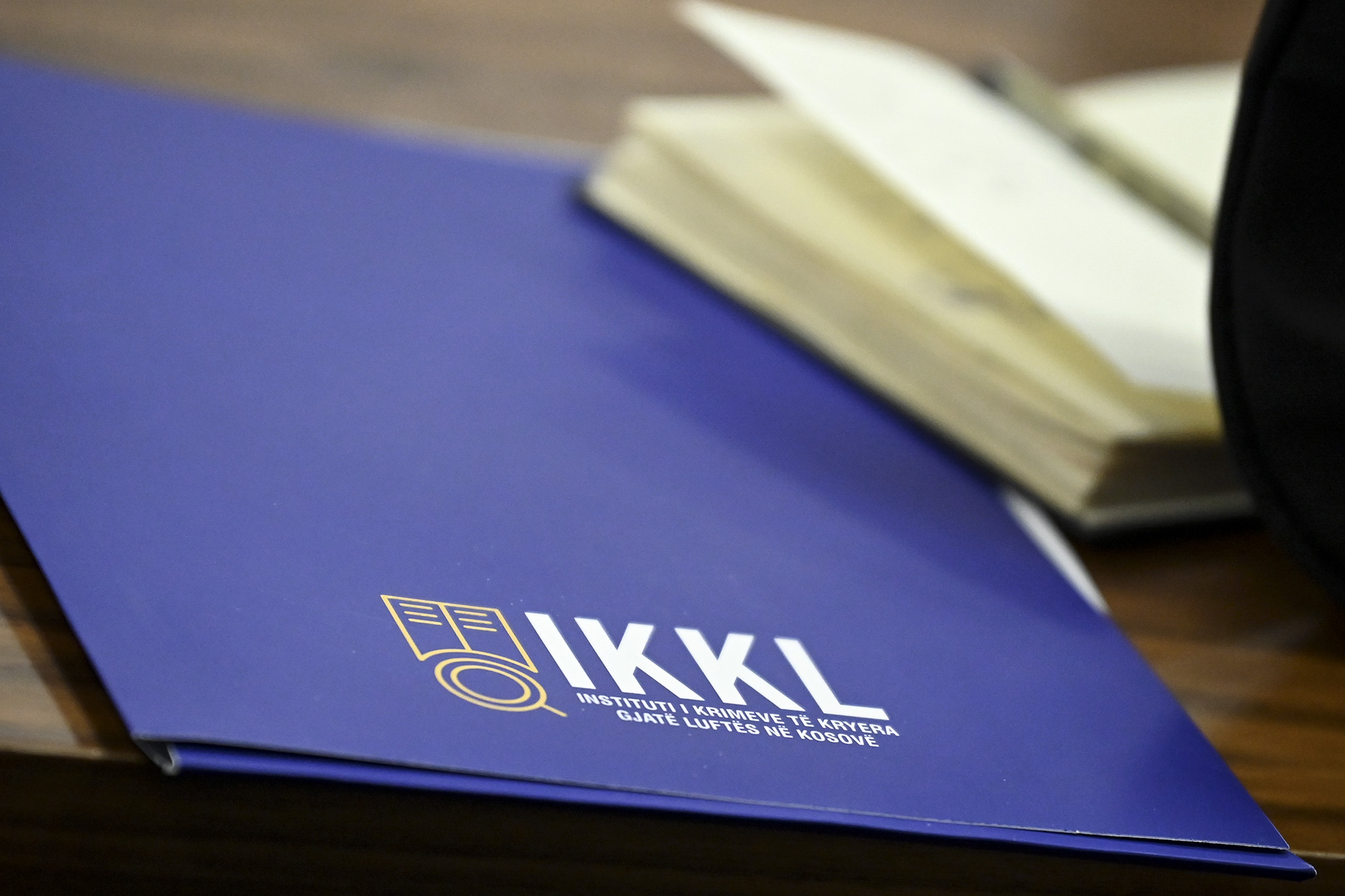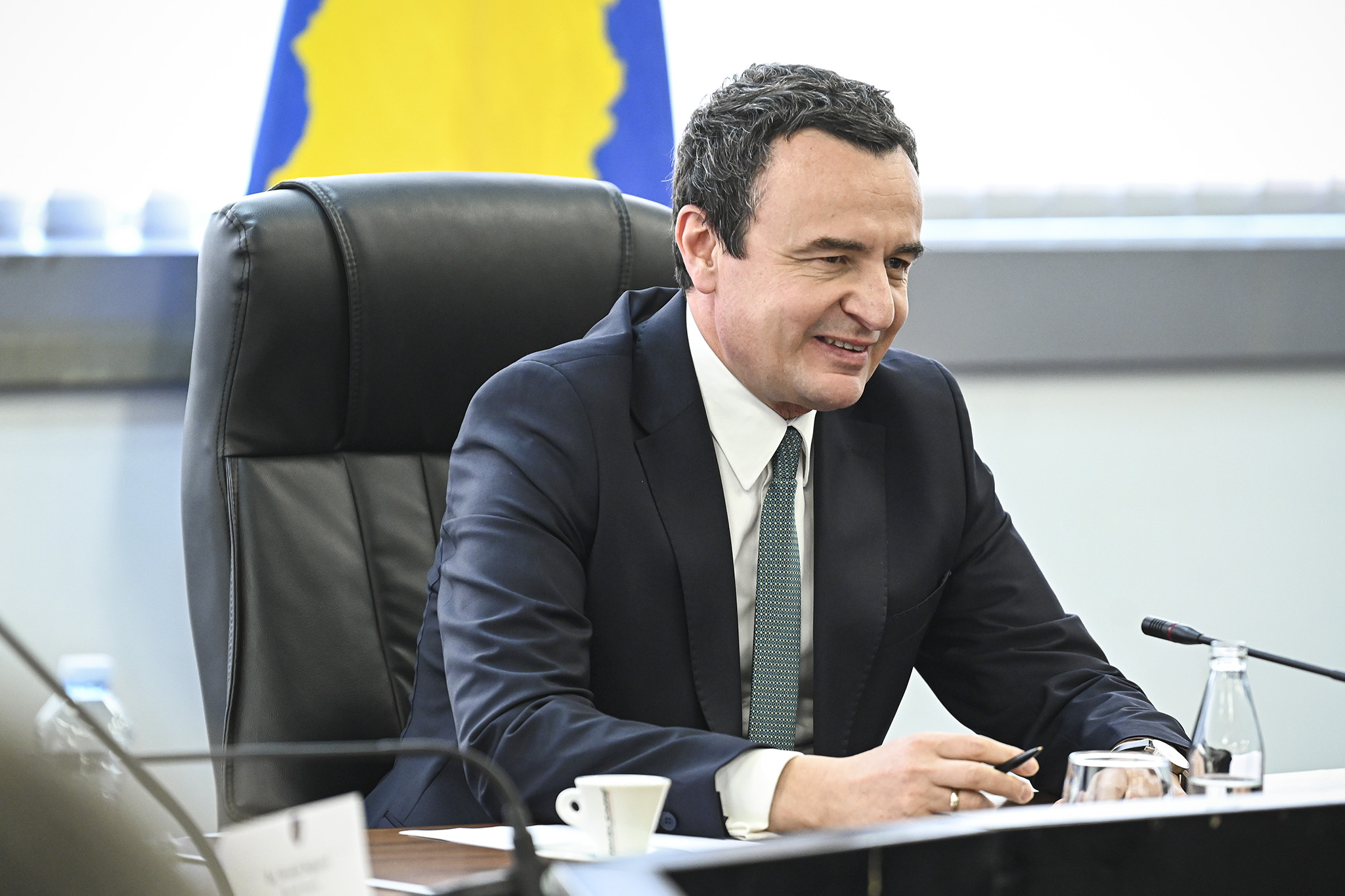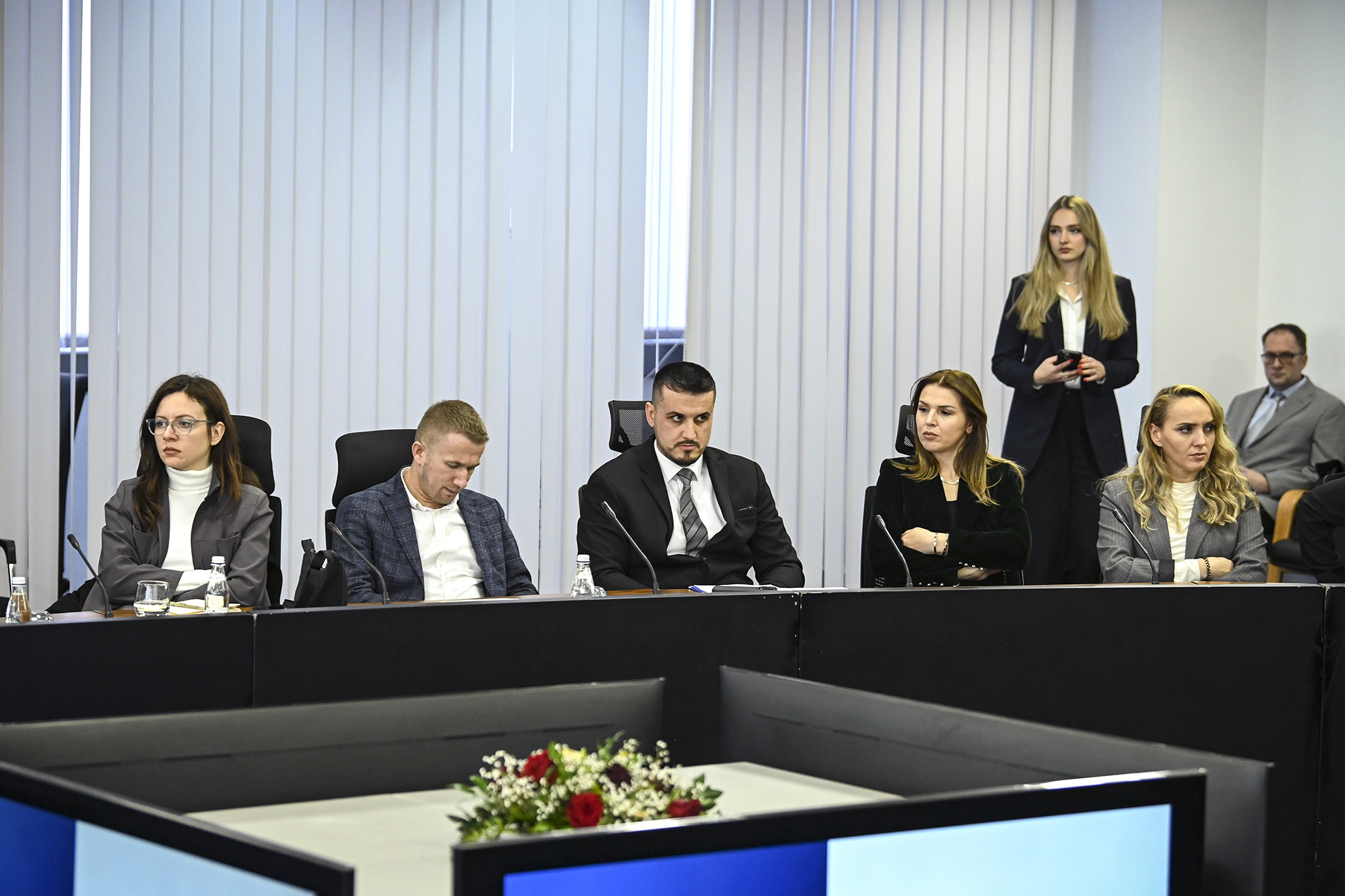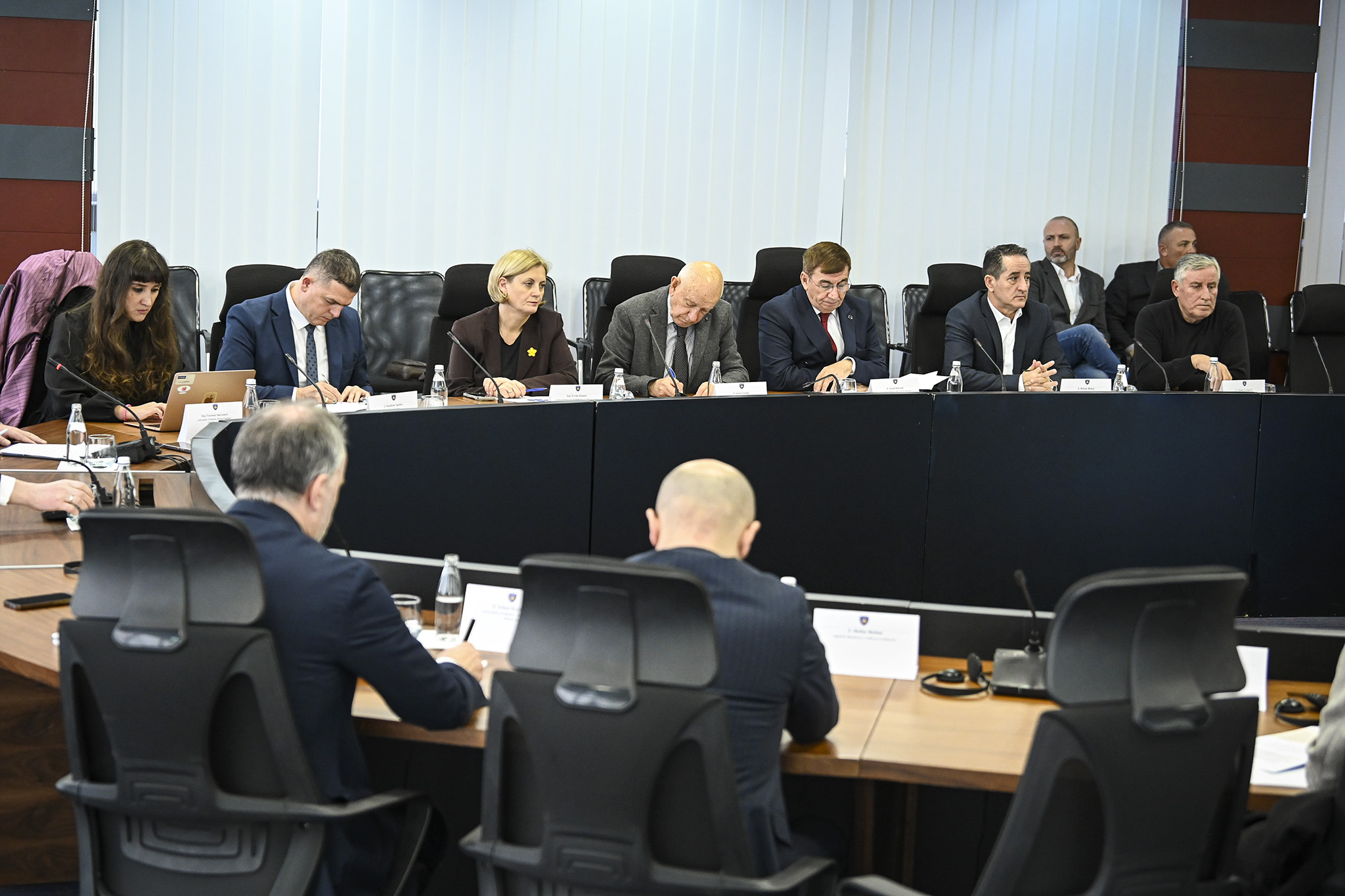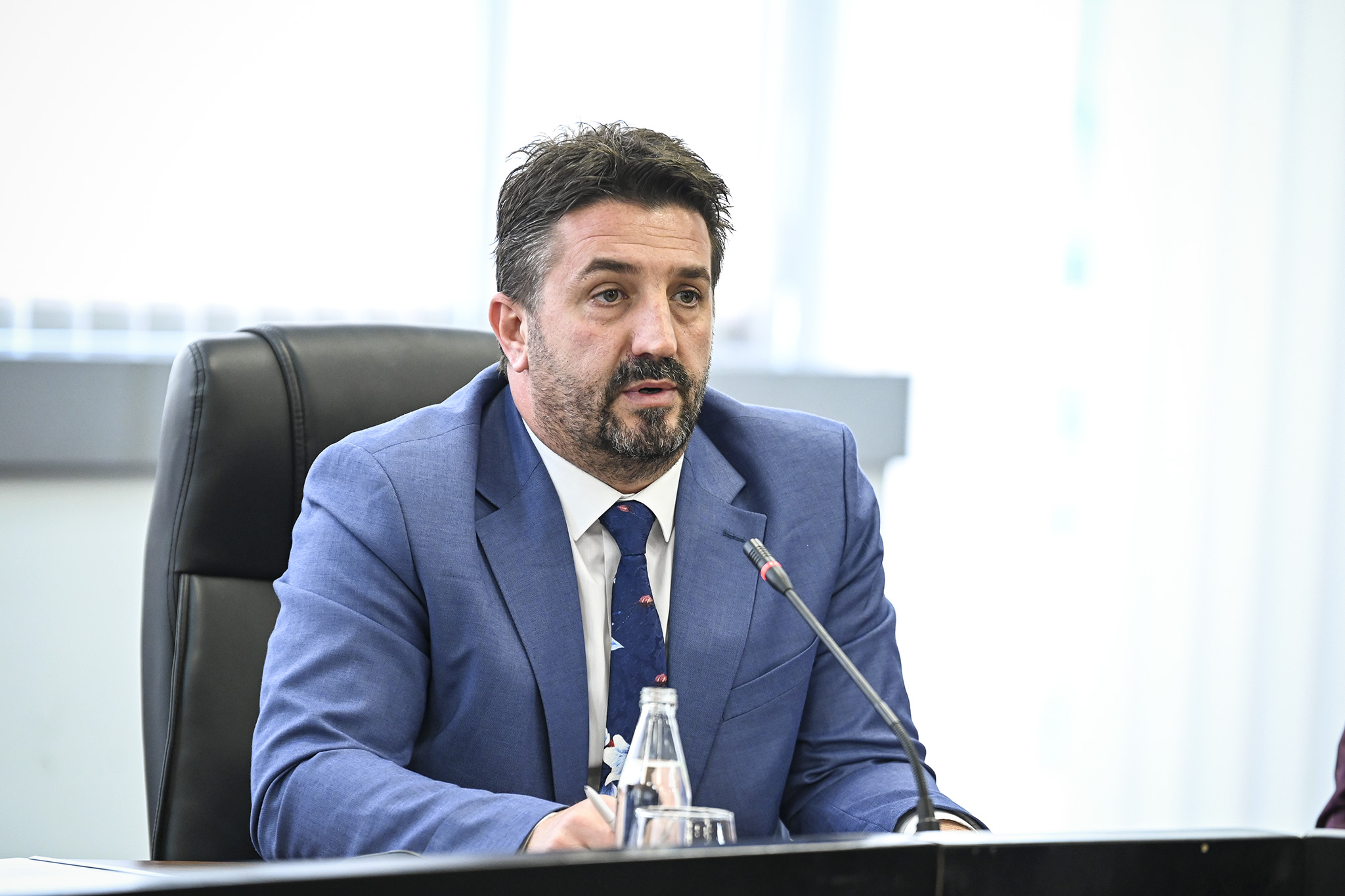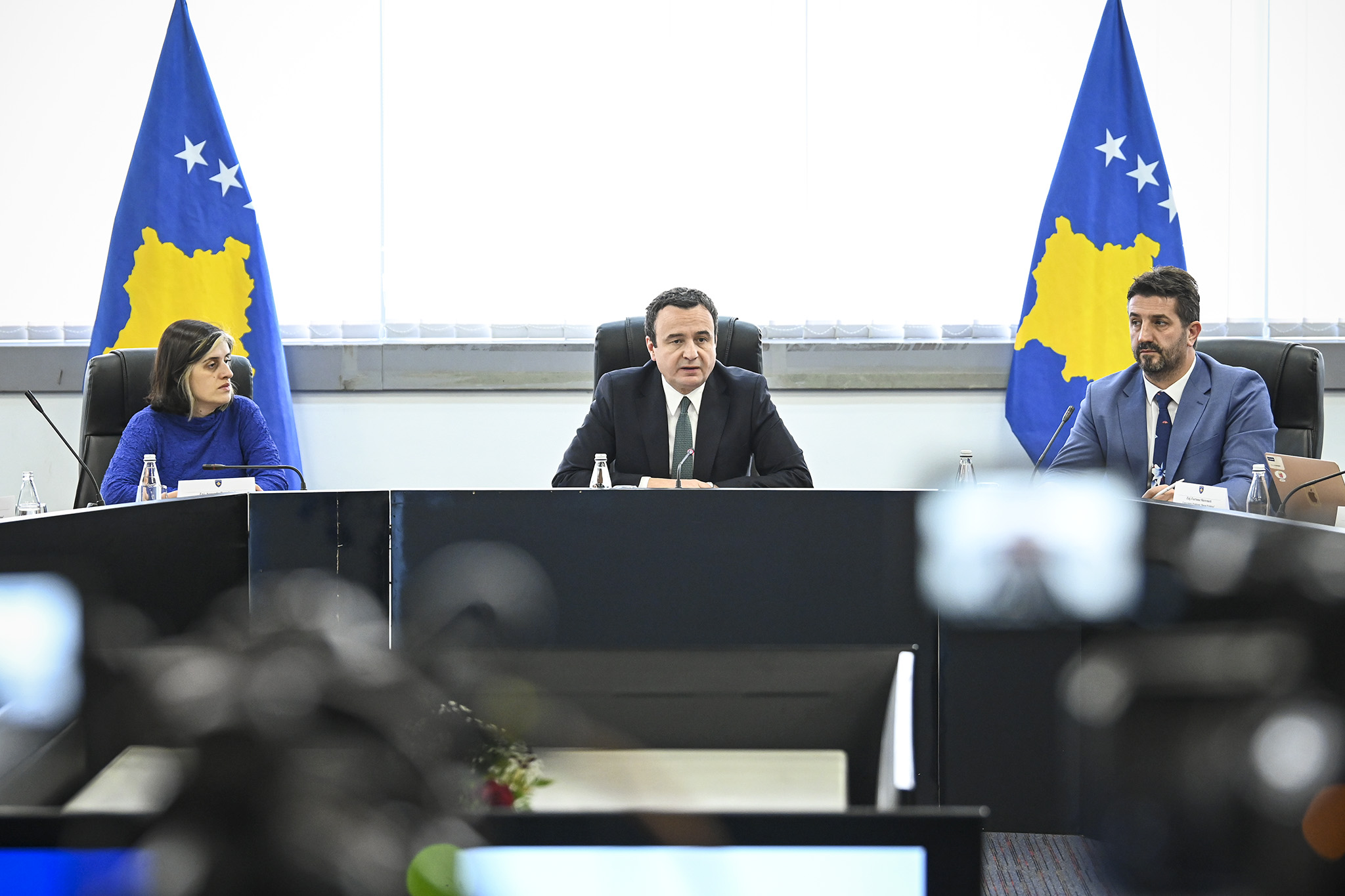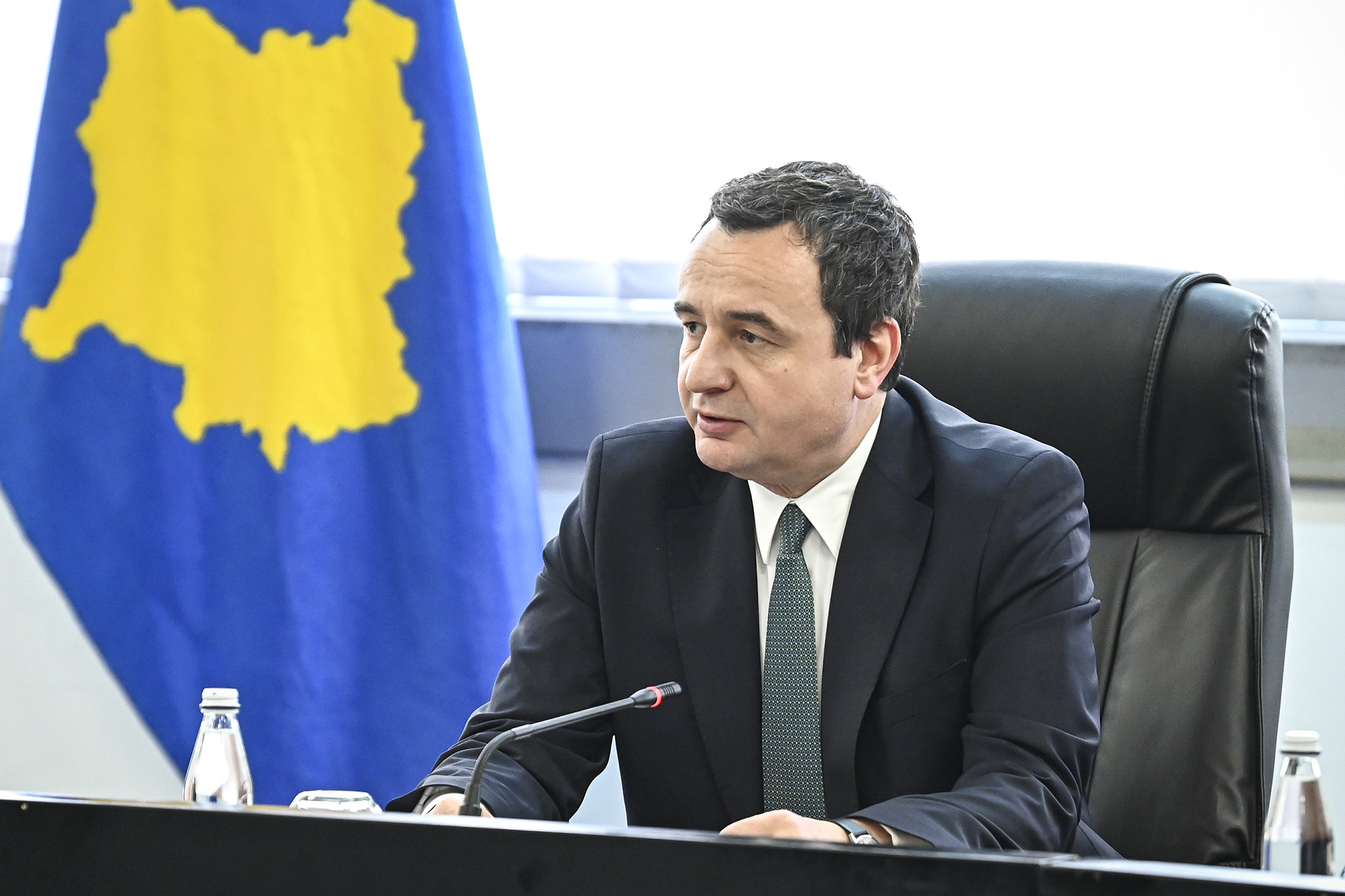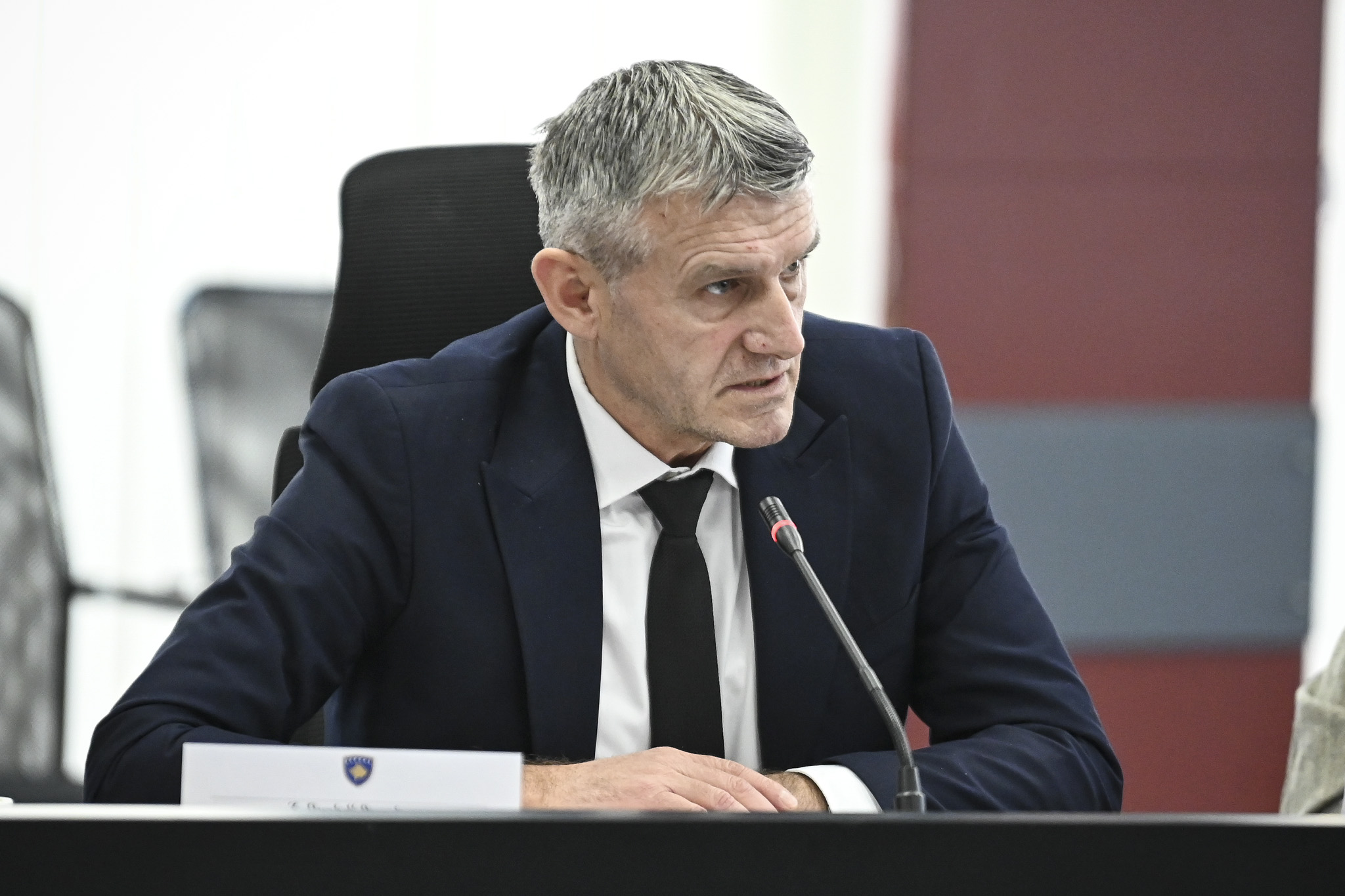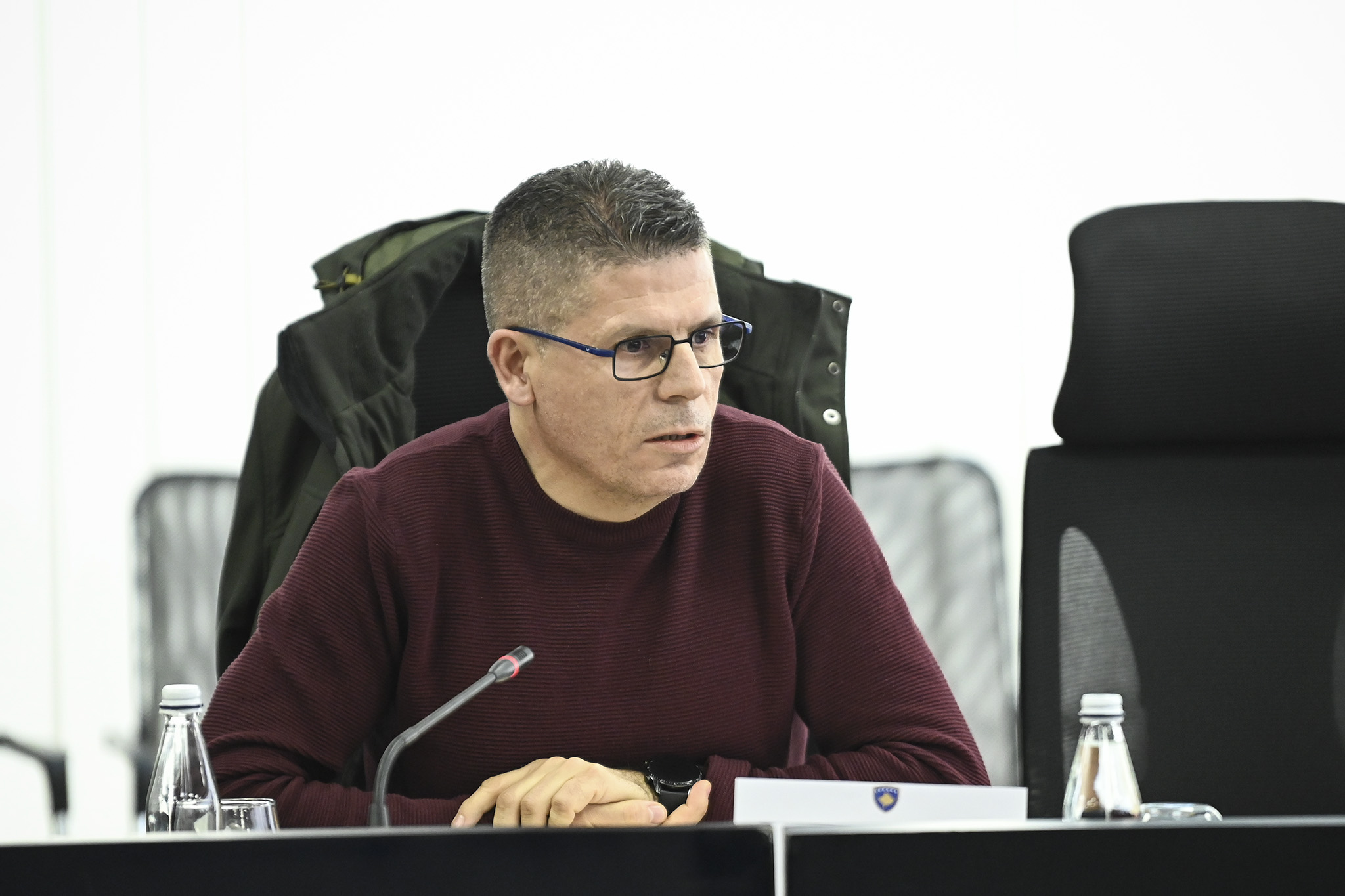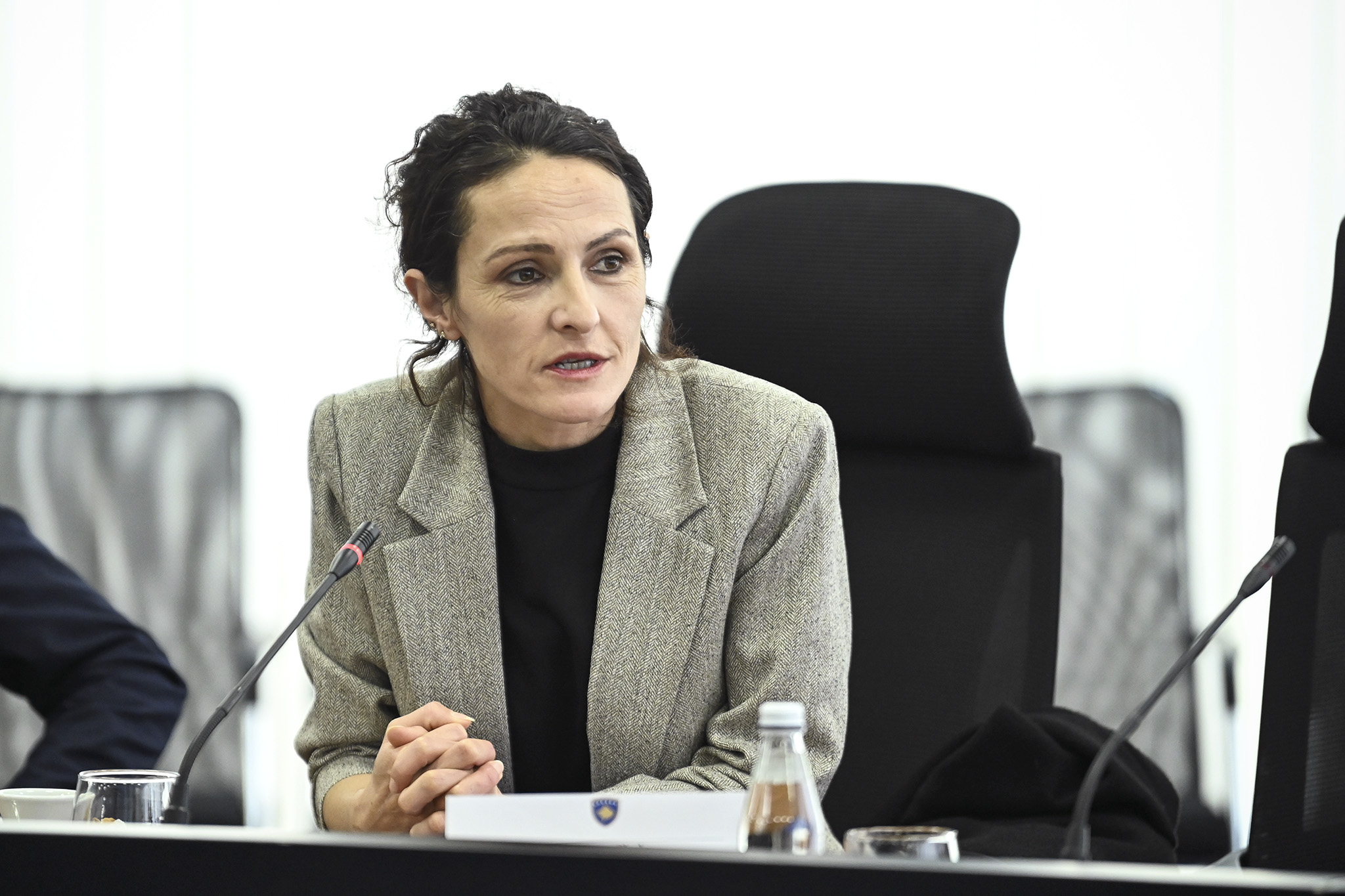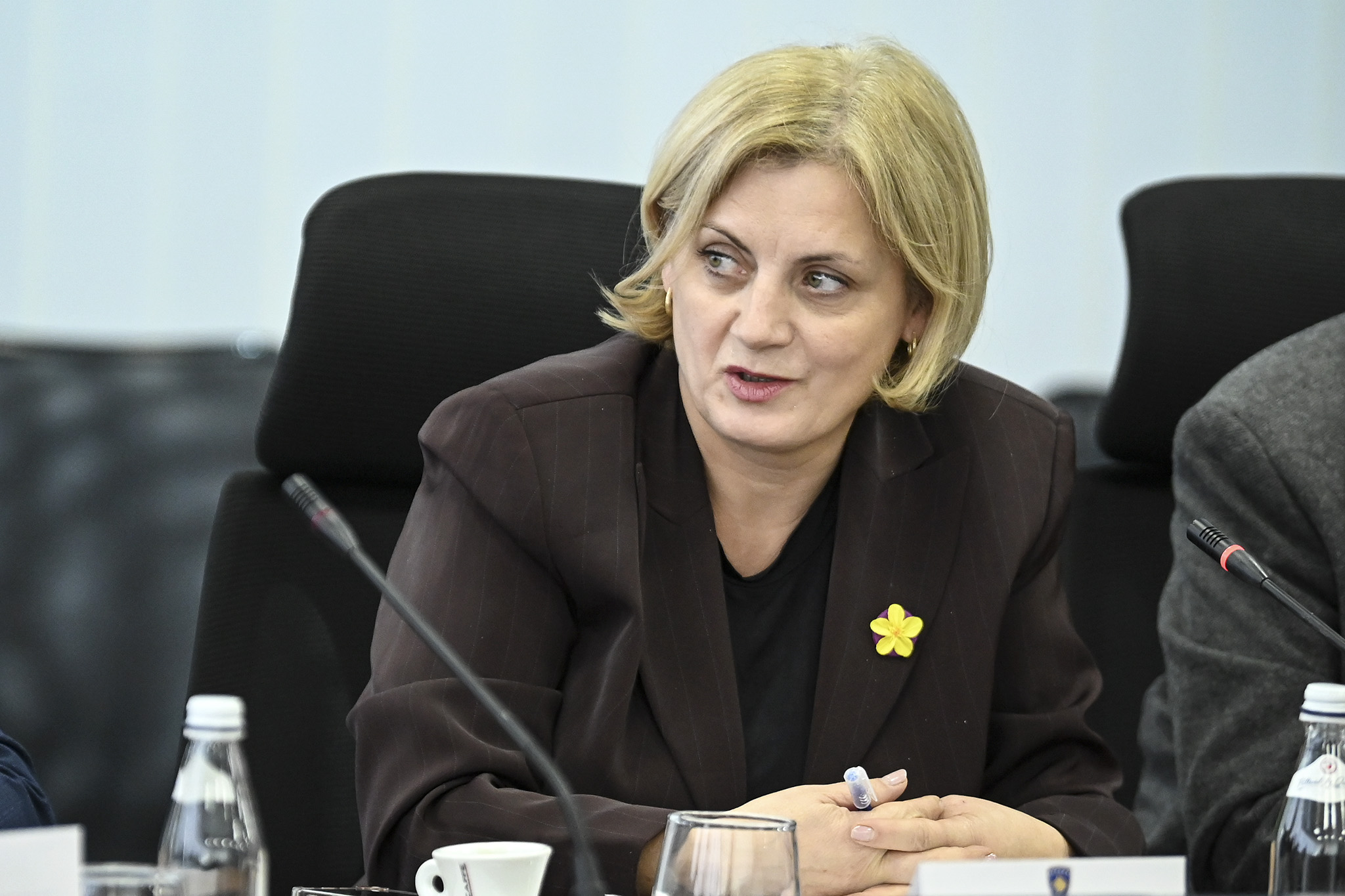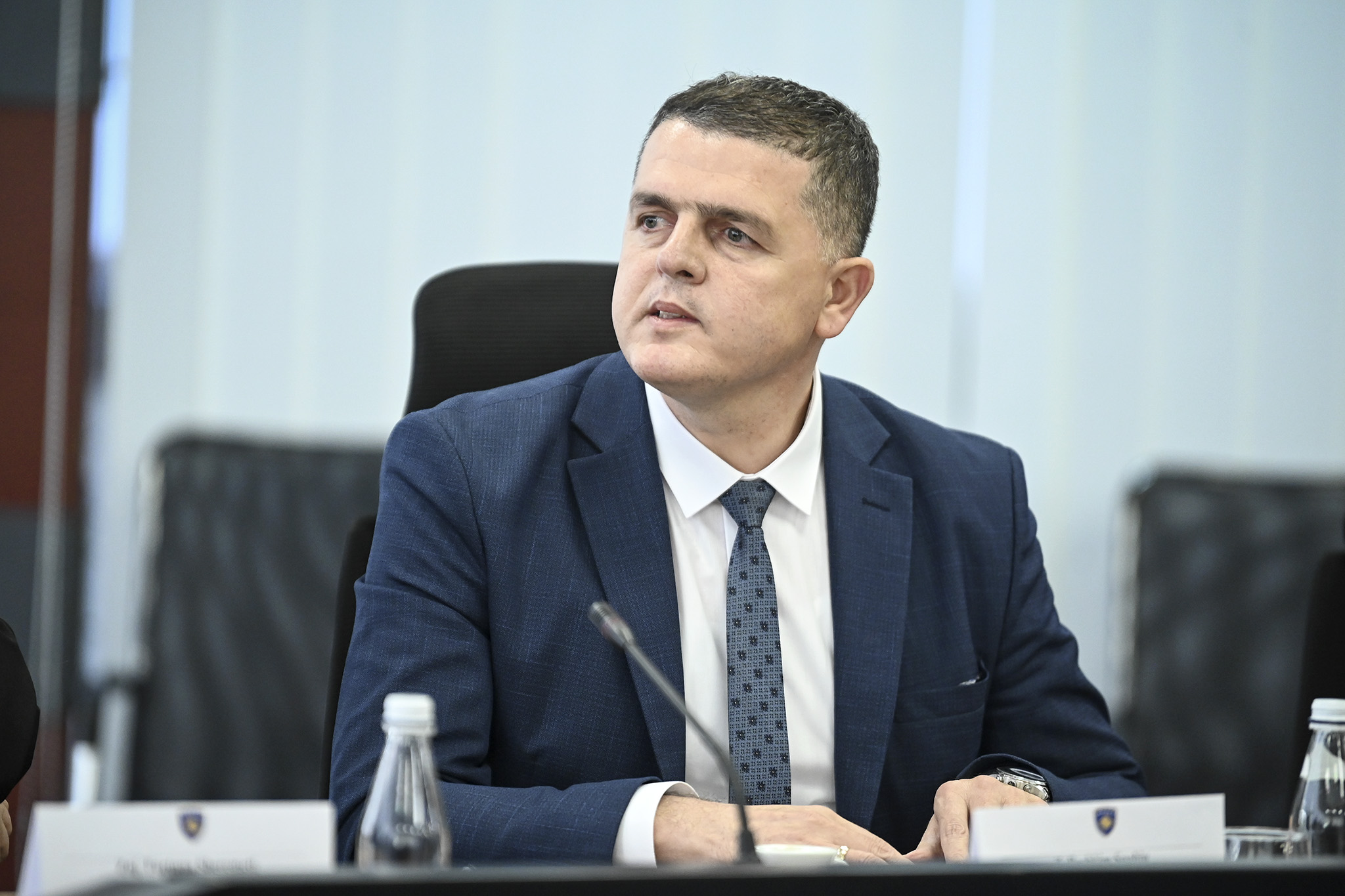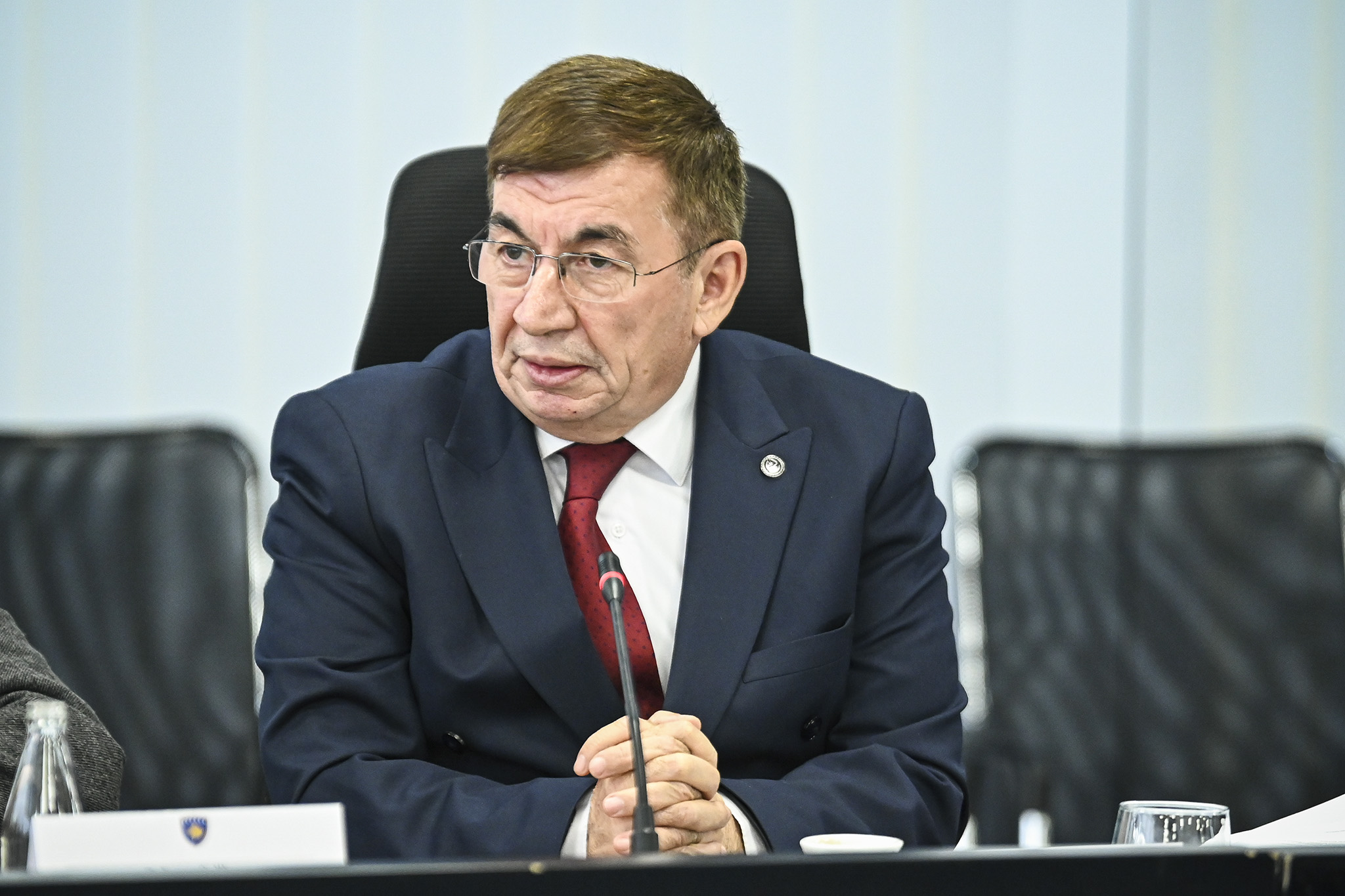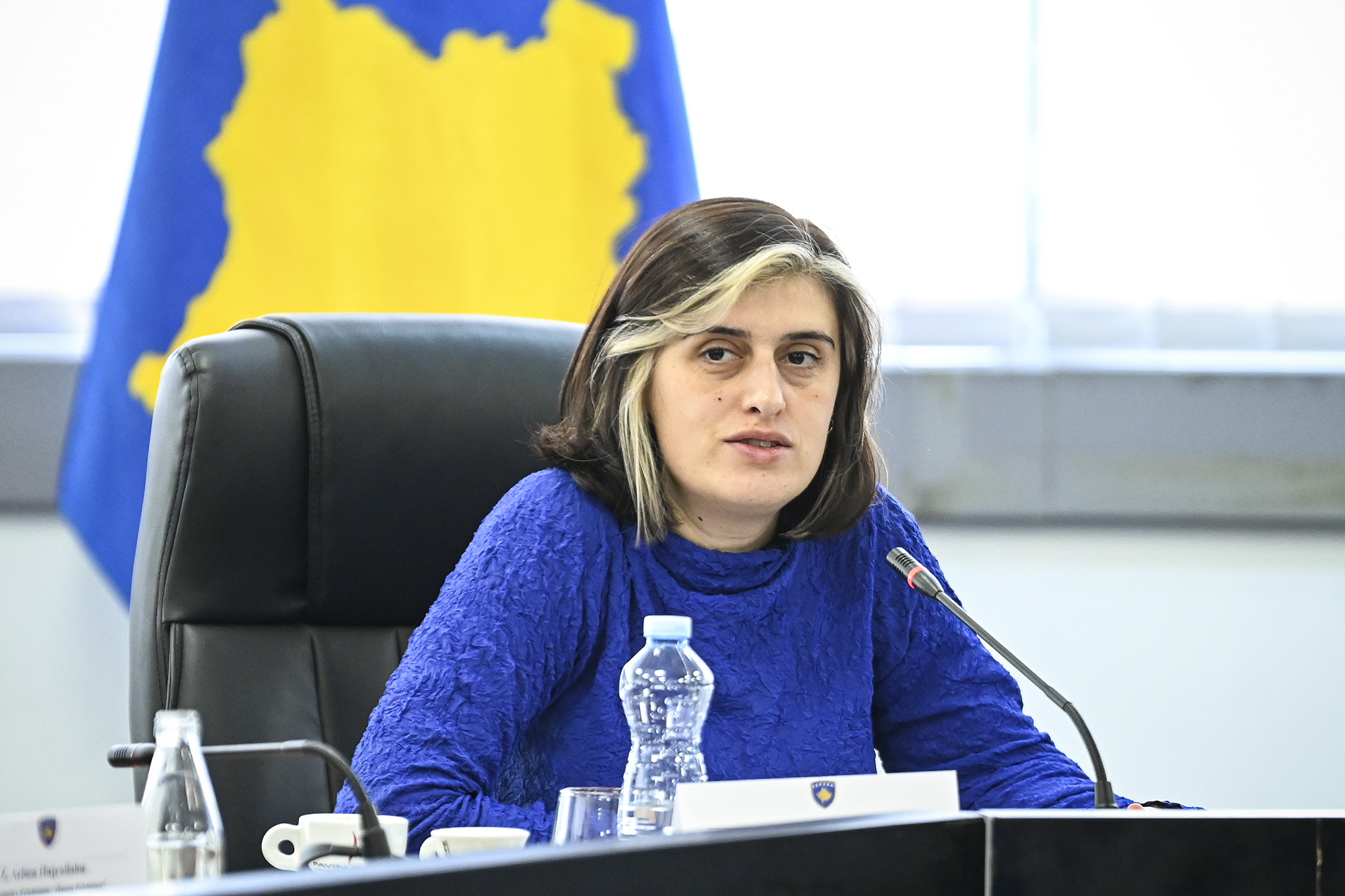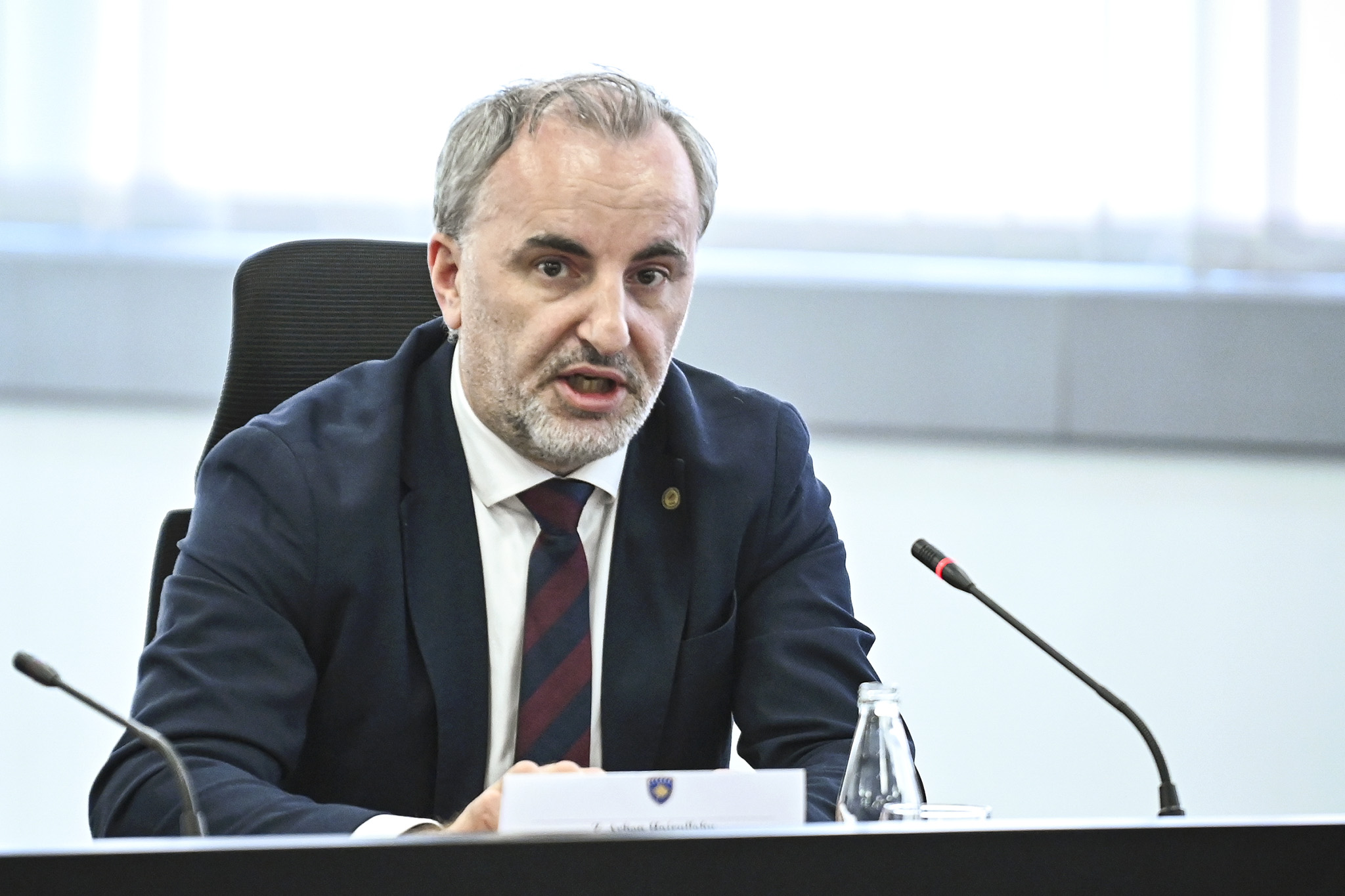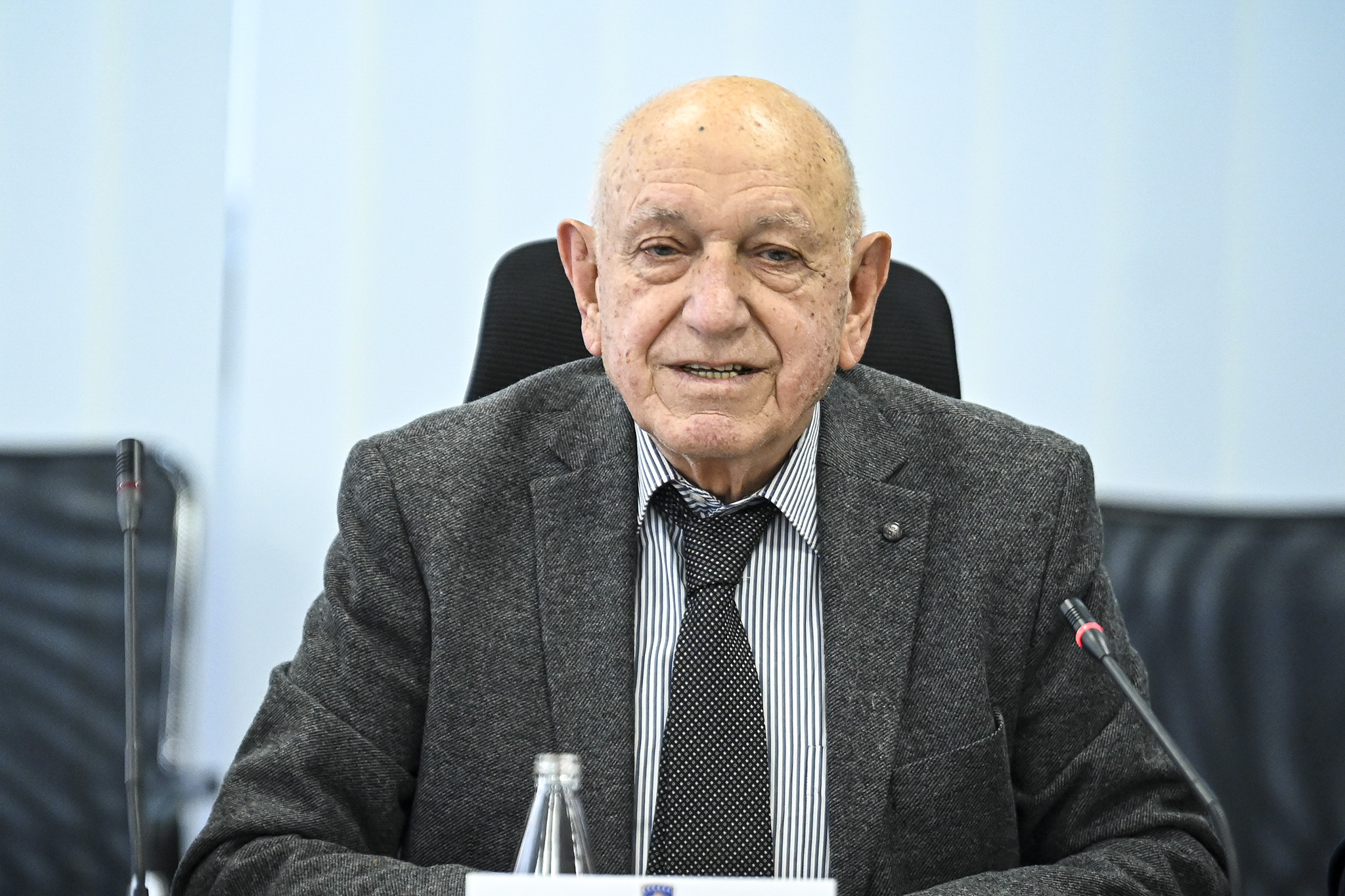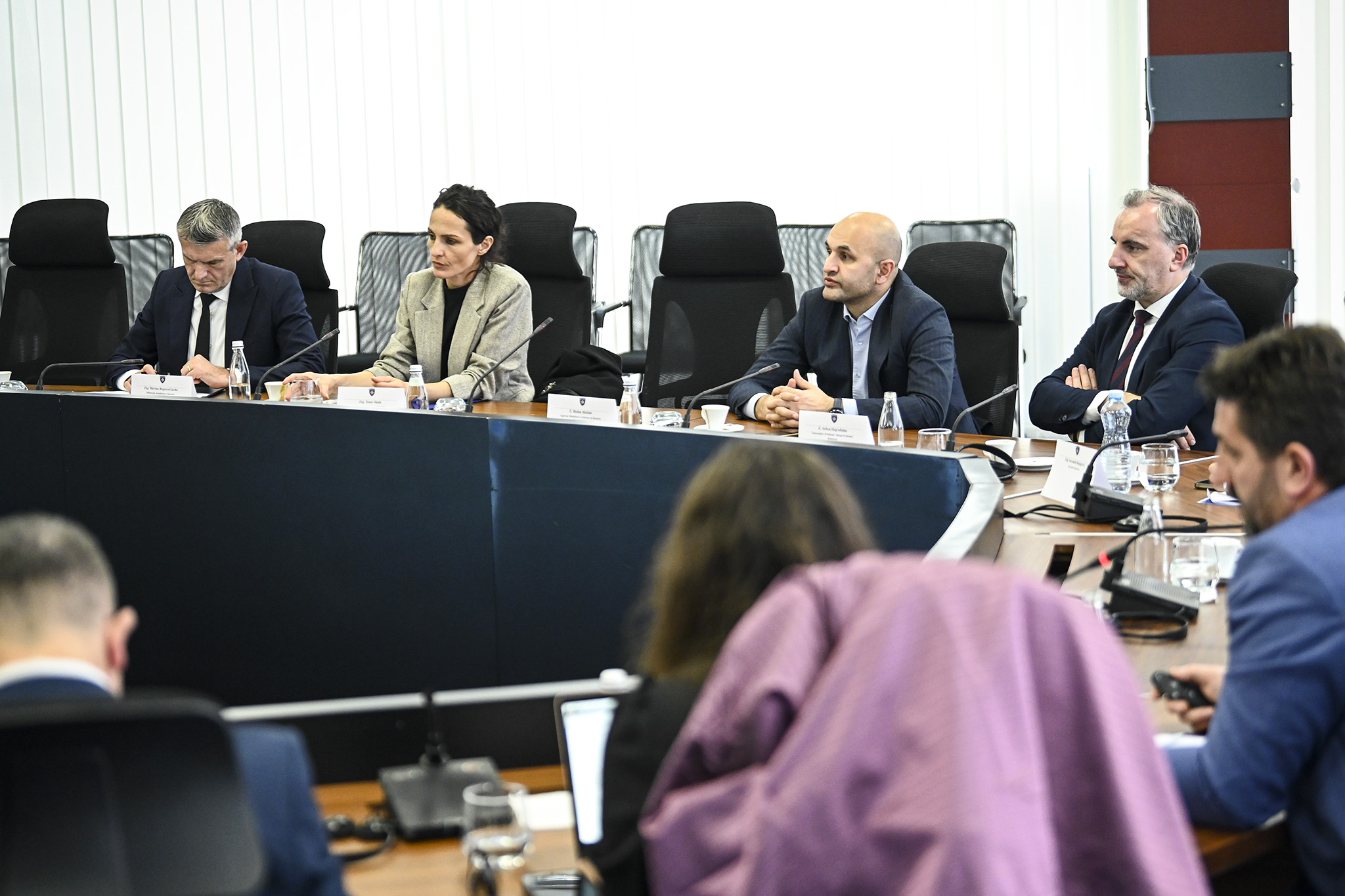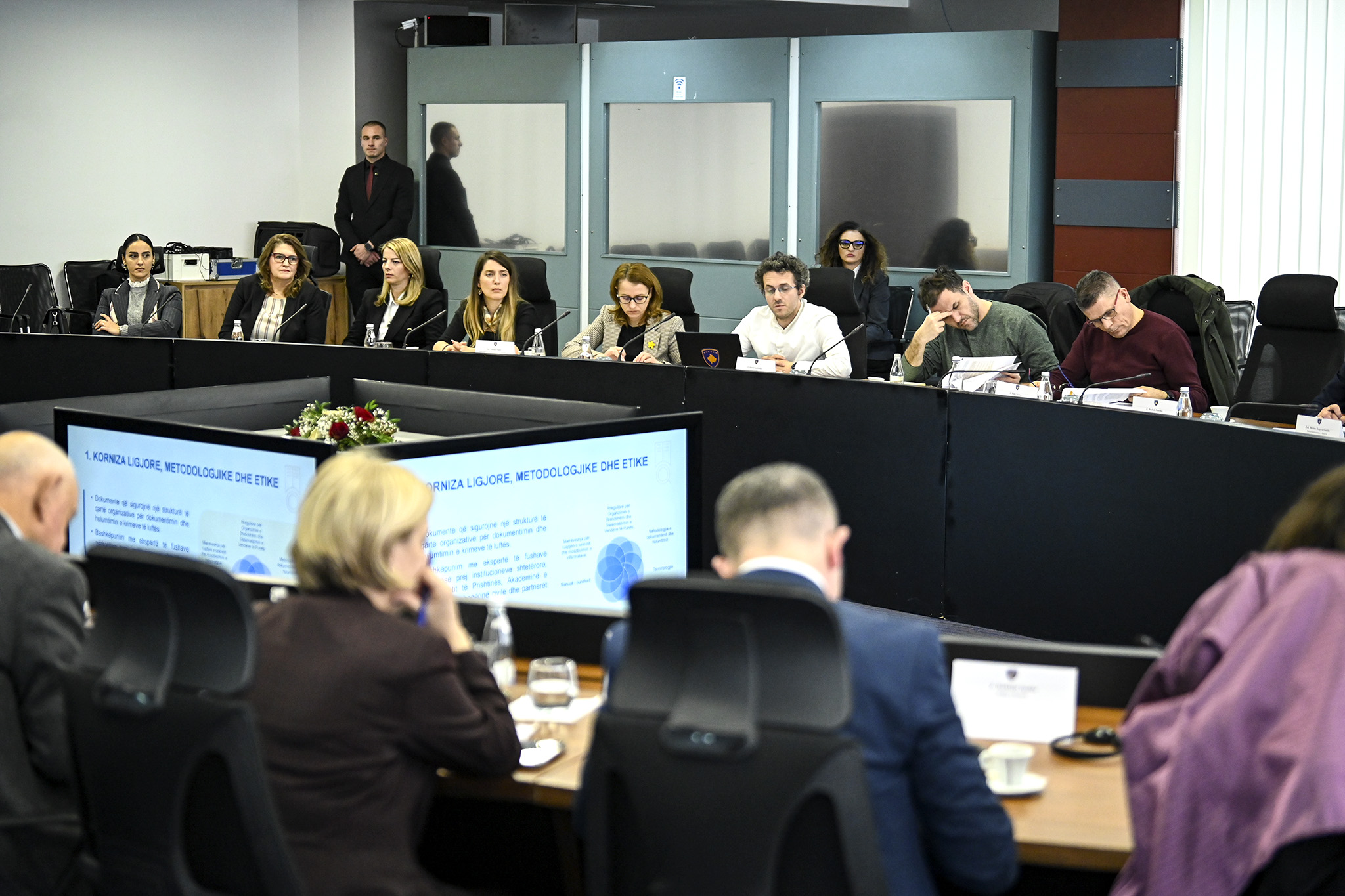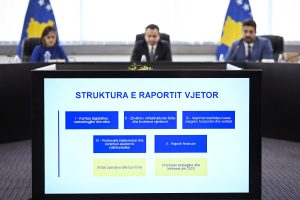Pristina, 17 December 2024
Today, at the Government Building, the 1-year report of the Institute for War Crimes Committed During the War in Kosovo was presented, encompassing the documentation of crimes committed during the war in Kosovo.
In his address to the attendees, the Prime Minister of the Republic of Kosovo, Albin Kurti, stated that these materials are being archived to serve as a testament to the collective memory of our people and as a foundation for justice, which will also serve future generations, enabling them to understand the suffering and resilience of our people during a dark period.
“The Institute continues to cooperate with all institutions of the Republic of Kosovo to collect and systematize materials that document the crimes. The methodology guiding this process represents a comprehensive approach, with high professional and ethical standards. This year, approximately 190 meters of physical archival material and around 15 terabytes of digital material – videos, audio recordings, and photographs documenting war crimes in Kosovo – have been collected. This information, gathered during this period, has been sourced from 67 different entities, including organizations, institutions, and private collectors who have handed over the evidence they possessed,” said Prime Minister Kurti.
He expressed gratitude to numerous organizations and human rights activists for their commitment and decades-long efforts to document the crimes committed by Serbia, as well as to the Kosovo State Agency of Archives, the Institute of History, the University of Pristina, the National Library of Kosovo, and other state institutions for their support of the Institute for War Crimes Committed During the War in Kosovo.
Furthermore, he added that while families continue to search for the remains of their loved ones, Serbia refuses to apologize or even acknowledge its genocidal past. Meanwhile, the political successors of Milosevic and his regime, who still lead Serbia to this day, continue to deny the genocide and glorify violence, reigniting its expansionist and hegemonic ambitions.
“Therefore, for the victims and survivors who lost their dearest ones, we cannot forget. In the name of justice, peace, and the preservation of truth, we must remember: documenting the war crimes, crimes against humanity, and genocide committed during the 1998-1999 war in Kosovo is a moral and historical obligation for all generations. It is a promise to the victims and their families that we will never forget anyone, ever,” he said.
The Executive Director of the Institute for War Crimes Committed During the War in Kosovo (IKKL), Atdhe Hetemi, stated that the presentation of the Annual Work Report reaffirms their commitment to maintaining dialogue and involving all relevant stakeholders in their work.
“The 1-year report presented today summarizes the Institute’s work from November 2023 to November 2024 and reflects our joint efforts to lay strong foundations for the documentation and investigation of war crimes,” he said, adding that for 2025, the primary priorities remain the full operationalization of the Institute, intensifying efforts to collect materials in regional countries, and implementing the digitization project.
Full Speech of Prime Minister Kurti:
Distinguished Ms. Saranda Bogujevci, Deputy Speaker of the Assembly of the Republic of Kosovo,
Distinguished Mr. Atdhe Hetemi, Director of the Institute for War Crimes Committed During the War in Kosovo,
Distinguished Professor Arben Abdullahu, Rector of the University of Pristina,
Distinguished Professor Arsim Bajrami, Professor Ismet Salihu,
Distinguished Professors, Leaders, and Representatives of Institutions,
Distinguished Representatives of Civil Society Organizations, Partners, and Collaborators,
Distinguished Guests,
Ladies and Gentlemen,
Good day, and welcome to the Prime Minister’s Office!
We have met before in this format to discuss the regulations and methodology guiding the work of the Institute for War Crimes Committed During the War in Kosovo. After a long process, it is a pleasure to speak today about the results of one year of work in documenting the crimes committed during the 1998-1999 war in Kosovo.
We deeply value the cooperation with all of you and all stakeholders. We welcome everyone’s contributions to achieving our shared goal of institutionalizing, protecting, and preserving collective memory.
In addition to state institutions, independent documenters and researchers, civil society, experts, media, journalists, and citizens are now part of the Institute’s effort to collect and integrate all changes.
These materials are being archived to serve our collective memory as a people and our shared pursuit of justice. They will also serve future generations, enabling them to understand the suffering and resilience of our people during a dark period.
We are grateful to our organizations and human rights activists for their commitment and years of tireless work in documenting the crimes committed by Serbia.
We also express our gratitude to the Kosovo State Agency of Archives, the Institute of History, the University of Prishtina, the National Library of Kosovo, and all other institutions for their support and assistance.
For the first time this year, the population registration process included a questionnaire on war damages from 1998-1999. Here with us is the acting director of the Kosovo Agency of Statistics, Mr. Kastrati. Citizens have declared economic damages, destroyed properties, and personal losses, including family members killed, missing, injured, or imprisoned.
We are pleased by the cooperation between the Institute and the Kosovo Agency of Statistics in verifying, processing, and analyzing these statistical data.
The Institute continues to cooperate with all institutions of the Republic of Kosovo to collect and systematize materials that document the crimes. The methodology guiding this process represents a comprehensive approach, with high professional and ethical standards. This year, approximately 190 meters of physical archival material and around 15 terabytes of digital material – videos, audio recordings, and photographs documenting war crimes in Kosovo – have been collected. This information, gathered during this period, has been sourced from 67 different entities, including organizations, institutions, and private collectors who have handed over the evidence they possessed.
I extend my heartfelt gratitude to all the employees at the Institute for their dedication to this critical and sensitive process. I commend the Executive Director, Atdhe Hetemi, for his commitment and contribution.
The work carried out during this first year by the Institute, with your support as partners in this process, helps us document both the tragedies and the ongoing consequences of the last war. Together, we are building a strong foundation to combat denial or misinterpretation of historical truth and to prevent the recurrence of tragedies.
Distinguished guests,
While families still search for the remains of their loved ones, Serbia refuses to apologize or even acknowledge its genocidal past.
As it continues to deny genocide and glorify violence, the political successors of Milosevic and his regime, who still govern Serbia today, reignite its expansionist and hegemonic ambitions.
Therefore, for the victims and the survivors who lost their dearest ones, we cannot forget. In the name of justice, peace, and the preservation of truth, we must remember: documenting the war crimes, crimes against humanity, and genocide committed during the 1998-1999 war in Kosovo is a moral and historical obligation for all generations. It is a promise to the victims and their families that we will never forget anyone, ever.
Thank you very much for your continued commitment to this collective effort. Let us proceed with determination towards our joint goal for a future that is both just and peaceful.
Thank you!

